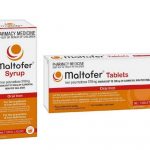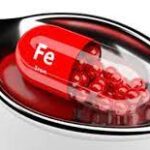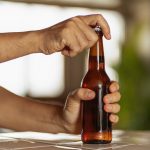How Long After Taking Iron Can You Drink Coffee?

Coffee is a beloved beverage known for its ability to fine-tune your focus and boost your energy levels. In fact, many people depend on their daily cup of joe right when they wake up to get their day started on the right foot. In addition to its energizing effects, coffee has been linked to a long list of potential health benefits, giving you all the more reason to get brewing.
Recent studies found that coffee drinkers are less likely to die from some of the leading causes of death in women: coronary heart disease, stroke, diabetes, and kidney disease. Your body may process glucose (or sugar) better. Drinking one to two cups of coffee a day may help ward off heart failure when a weakened heart has difficulty pumping enough blood to the body. Caffeine is not only linked to a lower chance of developing Parkinson’s disease, but it may also help those with the condition better control their movements.
Both regular and decaf coffee seem to have a protective effect on your liver. Research shows that coffee drinkers are more likely to have liver enzyme levels within a healthy range than people who don’t drink coffee.
Coffee and Iron
Iron is a mineral that is naturally present in many foods, added to some food products, and available as a dietary supplement. Iron is an essential component of hemoglobin, an erythrocyte (red blood cell) protein that transfers oxygen from the lungs to the tissues.
According to the National Institutes of Health (NIH), the types of iron in supplements include:
- ferrous sulfate
- ferrous gluconate
- ferric citrate
- ferric sulfate
Before taking iron supplements, it is best to speak with a pharmacist or healthcare professional.
Men aged 19 and older require 8 milligrams of iron per day. Women aged 19 to 50 have a recommended intake of 18 milligrams per day; age 51 and older need 8 milligrams per day. Pregnant women of all ages have recommended iron intakes of 27 milligrams daily. For male and female adolescents aged 9 to 13 years, recommended amounts of iron are 8 milligrams daily.
Several studies have found that coffee can reduce iron absorption. One study found that drinking a cup of coffee with a hamburger meal reduced iron absorption by 39%. Drinking tea, a known inhibitor of iron absorption, with the same meal reduced iron absorption by a whopping 64%.
Another study found that drinking a cup of instant coffee with a bread meal reduced iron absorption by 60–90%. What’s more, the stronger the coffee or tea, the less iron absorbed. Furthermore, regular coffee consumption may also have an effect on iron storage levels.
A large study found that among elderly people, each weekly cup of coffee was associated with a 1% lower level of ferritin, a protein that indicates iron storage levels. However, it’s important to remember that the effects of coffee on iron absorption seem to depend on when you drink your coffee. For example, drinking coffee one hour before a meal had no effect on iron absorption.

How long should you wait to drink coffee after taking iron?
After taking iron supplements, you should wait for at least one to three hours before drinking coffee. An iron supplement that is working well can be fully absorbed within this period, and you should have a noticeable increase in your energy levels. When choosing an iron supplement, it is essential to choose one strong on absorption whilst gentle on the stomach. Many people get enough iron from the food they eat. Regularly getting an adequate amount of vitamin C and heme iron from meat, poultry, and seafood can help overcome iron inhibition from drinking coffee and tea.
Side effects of iron supplement
Taking the appropriate dosage of iron is unlikely to cause any side effects. In some instances, however, people taking iron supplements may experience the following symptoms:
• diarrhea
• flatulence
• constipation
• nausea
In most cases, these side effects will subside once the body adjusts to the supplement. If someone experiences these side effects and has concerns about them, they can speak to a healthcare professional.
Having too much iron in the body can also be problematic. Hemochromatosis, or iron overload disorder, causes iron to build up in the body. Without treatment, iron overload disorder can damage the body’s organs, including the heart, liver, and pancreas.
If someone takes more than the recommended dosage of iron supplements, they may develop iron poisoning.
You may also find useful information on What Happens When You Take Adderall and Caffeine?





